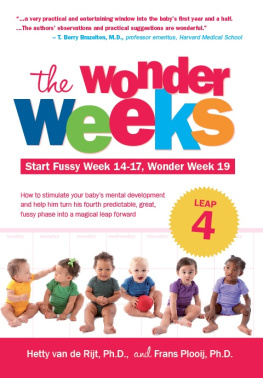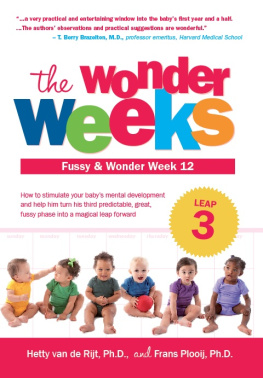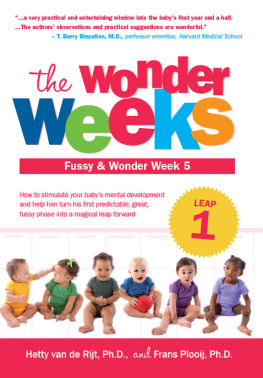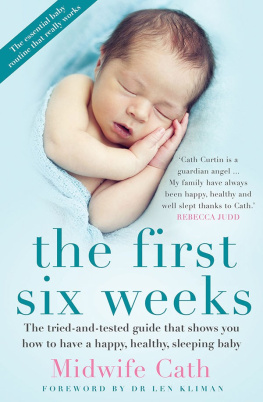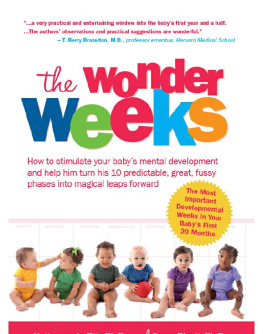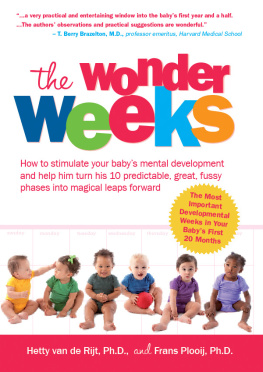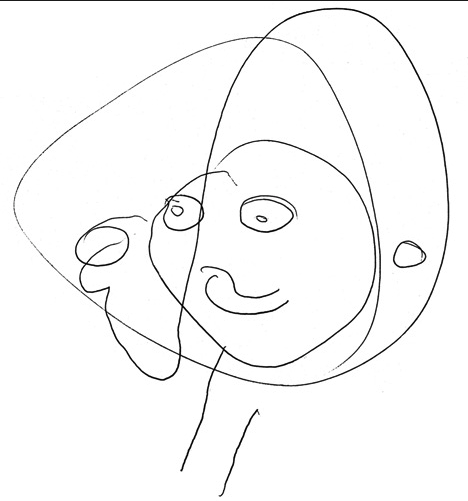Hetty van de Rijt - The Wonder Weeks, Leap 4: How to Stimulate Your Babys Mental Development and Help Him Turn His 10 Predictable, Great, Fussy Phases Into Magical Leaps Forward
Here you can read online Hetty van de Rijt - The Wonder Weeks, Leap 4: How to Stimulate Your Babys Mental Development and Help Him Turn His 10 Predictable, Great, Fussy Phases Into Magical Leaps Forward full text of the book (entire story) in english for free. Download pdf and epub, get meaning, cover and reviews about this ebook. year: 2012, publisher: Kiddy World Publishing, genre: Children. Description of the work, (preface) as well as reviews are available. Best literature library LitArk.com created for fans of good reading and offers a wide selection of genres:
Romance novel
Science fiction
Adventure
Detective
Science
History
Home and family
Prose
Art
Politics
Computer
Non-fiction
Religion
Business
Children
Humor
Choose a favorite category and find really read worthwhile books. Enjoy immersion in the world of imagination, feel the emotions of the characters or learn something new for yourself, make an fascinating discovery.
- Book:The Wonder Weeks, Leap 4: How to Stimulate Your Babys Mental Development and Help Him Turn His 10 Predictable, Great, Fussy Phases Into Magical Leaps Forward
- Author:
- Publisher:Kiddy World Publishing
- Genre:
- Year:2012
- Rating:5 / 5
- Favourites:Add to favourites
- Your mark:
The Wonder Weeks, Leap 4: How to Stimulate Your Babys Mental Development and Help Him Turn His 10 Predictable, Great, Fussy Phases Into Magical Leaps Forward: summary, description and annotation
We offer to read an annotation, description, summary or preface (depends on what the author of the book "The Wonder Weeks, Leap 4: How to Stimulate Your Babys Mental Development and Help Him Turn His 10 Predictable, Great, Fussy Phases Into Magical Leaps Forward" wrote himself). If you haven't found the necessary information about the book — write in the comments, we will try to find it.
WARNING: In The Wonder Weeks, full version, all ten leaps are described. This chapter book only describes the fourth leap. The Wonder Weeks, start fussy week 14-17, Wonder Week 19, Leap 4. How to stimulate your babys mental development and help him turn this predictable, great, fussy phases into a magical leap forward, describes in easy-to-understand terms the incredible developmental changes that all babies go through 19 weeks after the due date (fussy period 14-17 weeks). The book is based on the discovery of the phenomenon that all normal, healthy babies appear to be more tearful, troublesome, demanding and clingy at very nearly the same ages. A worldwide bestseller and sanity savior for parents around the globe. @19 Weeks (Leap of Events): Itsy Bitsy Spider...The perceptual world your baby enters after the next leap is the world of events. Until your baby has made this leap, he can only perceive smooth transitions. After he has made this leap, he is able to perceive a short, familiar series of smooth transitions with all his senses seeing, hearing, feeling, smelling, and tasting and also when it comes to interactions with those around him. Examples include the perception of a bouncing ball, or grasping something with a hand. The baby will enjoy the classic nursery rhymes with gestures, such as Itsy Bitsy Spider...Tip: If your baby is fussy, be sure to observe if he is mastering new skills already, or attempting to do so.
Note: Most babies make this leap 19 weeks after the due date. However, some babies make the leap one week sooner, some one week later.
This chapter / leap book includes:
- An explanation of the markers for cranky, clingy, crying (the three Cs) behavior and how to deal with them
- A description from your babys perspective of the world around him and how you can understand the changes hes going through
- Fun games and gentle activities you can do with your child
This chapter / leap book your parents:
- Support in times of trouble (19 weeks) (fussy period 14-17 weeks)
- Self-confidence
- Help in understanding your baby
- Hints on how to help your baby play and learn
- A unique account of your babys development
For more detailed information about contents and the research behind the book, please visit thewonderweeks.com
Hetty van de Rijt: author's other books
Who wrote The Wonder Weeks, Leap 4: How to Stimulate Your Babys Mental Development and Help Him Turn His 10 Predictable, Great, Fussy Phases Into Magical Leaps Forward? Find out the surname, the name of the author of the book and a list of all author's works by series.

